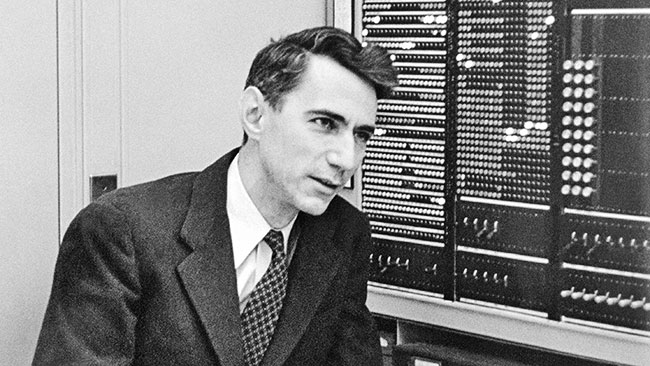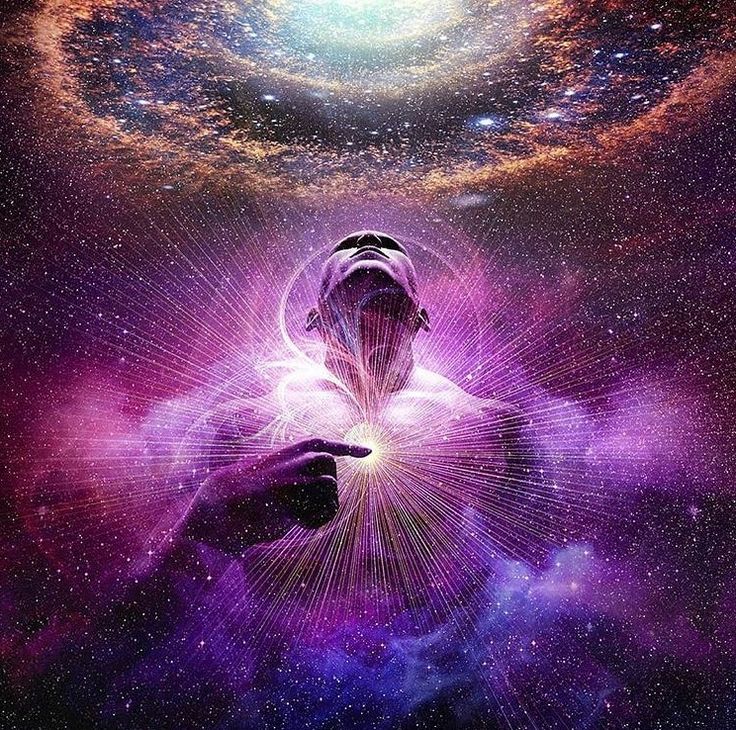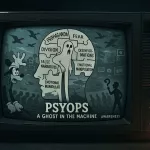by Melvin M. Vopson
Associate Professor of Physics,
University of Portsmouth
October 18, 2023
from TheConversation Website
The simulated universe theory implies that,
our universe, with all its galaxies, planets and life forms, is a meticulously programmed computer simulation.
In this scenario, the physical laws governing our ‘reality‘ are simply algorithms.
The experiences we have are generated by the computational processes of an immensely advanced system.
While inherently speculative, the simulated universe theory has gained attention from scientists and philosophers due to its intriguing implications.
The idea has made its mark in popular culture, across movies, TV shows and books – including the 1999 film
The earliest records of the concept that reality is an illusion are from ancient Greece.
There, the question,
“What is the nature of our reality?”,
posed by Plato(427 BC) and others, gave birth toidealism.
Idealist ancient thinkers such as Plato considered mind and spirit as the abiding reality...!
Matter, they argued, was just a manifestation or illusion…
Fast forward to modern times, and idealism has morphed into a new philosophy.
This is the idea that both the material world and consciousness are part of a simulated reality.
This is simply a modern extension of idealism, driven by recent technological advancements in computing and digital technologies.
In both cases, the true nature of reality transcends the physical.
Within the scientific community, the concept of a simulated universe has sparked both fascination and skepticism.
Some scientists suggest that if our reality is a simulation, there may be glitches or patterns within the fabric of the universe that betray its simulated nature.
However, the search for such anomalies remains a challenge.
Our understanding of the laws of physics is still evolving.
Ultimately, we lack a definitive framework to distinguish between simulated and non-simulated reality.
A new law of physics
If our physical reality is a simulated construct, rather than an objective world that exists independently of the observer, then,
how could we scientifically prove this…?
In a 2022 study, I proposed a possible experiment, but it remains untested today.
Plato (left) pointing upwards,
in reference to his belief in the higher forms.
Raphael‘s The School of Athens, depicting Plato pointing upwards (above image), in reference to his belief in the higher forms…!
However, there is hope…
Information theory,
is the mathematical study of the quantification, storage and communication of information.
Originally developed by mathematician Claude Shannon, it has become increasingly popular in physics and is used a growing range of research areas.

Claude Shannon Invented the Future.
Today’s information age is only possible thanks to
the groundbreaking work of a lone genius.
In my recent research, published in AIP Advances, I used information theory to propose a new law of physics, which I call the second law of infodynamics.
And importantly, it appears to support the simulated universe theory.
At the heart of the second law of infodynamics is the concept of entropy…:
a measure of disorder, which always rises over time in an isolated system.
When a hot cup of coffee is left on the table, after a while it will achieve equilibrium, having the same temperature with the environment.
The entropy of the system is at maximum at this point, and its energy is minimum.
The second law of infodynamics states that the “information entropy” (the average amount of information conveyed by an event), must remain constant or decrease over time – up to a minimum value at equilibrium.
So it is in total opposition to the second law of thermodynamics (that heat always flows spontaneously from hot to cold regions of matter while entropy rises).
For a cooling cup of coffee, it means that the spread of probabilities of locating a molecule in the liquid is reduced. That’s because the spread of energies available is reduced when there’s thermal equilibrium.
So information entropy always goes down over time as entropy goes up. My study indicates that the second law of infodynamics appears to be a cosmological necessity.
It is universally applicable with immense scientific ramifications.
We know the universe is expanding without the loss or gain of heat, which requires the total entropy of the universe to be constant.
However we also know from thermodynamics that entropy is always rising.
I argue this shows that there must be another entropy – information entropy – to balance the increase.
My law can confirm how genetic information behaves. But it also indicates that genetic mutations are at the most fundamental level not just random events, as Darwin‘s theory ‘suggests‘.
Instead, genetic mutations take place according to the second law of infodynamics, in such a way that the genome’s information entropy is always minimized.
The law can also explain phenomena in atomic physics and the time evolution of digital data.
Most interestingly, this new law explains one of the great mysteries of nature.
Why does symmetry rather than asymmetry dominate the universe…?
My study demonstrates mathematically that high symmetry states are the preferred choice because such states correspond to the lowest information entropy.
And, as dictated by the second law of infodynamics, that’s what a system will naturally strive for.
I believe this discovery has massive implications for,
- genetic research
- evolutionary biology
- genetic therapies
- physics
- mathematics
- cosmology,
…to name a few.
Simulation theory
The main consequence of the second law of infodynamics is,
the minimization of the information content associated with any event or process in the universe.
This in turn means,
an optimization of the information content, or the most effective data compression.
Since the second law of infodynamics is a cosmological necessity, and appears to apply everywhere in the same way, it could be concluded that this indicates that,
the entire universe appears to be a simulated construct or a giant computer…
A super complex universe like ours, if it were a simulation, would require a built-in data optimization and compression in order to reduce the computational power and the data storage requirements to run the simulation.
This is exactly what we are observing all around us, including in digital data, biological systems, mathematical symmetries and the entire universe.
Further studies are necessary before we can definitely state that the second law of infodynamics is as fundamental as the second law of thermodynamics.
The same is true for the simulated universe hypothesis…
But if they both hold up to scrutiny, this is perhaps the first time scientific evidence supporting this theory has been produced – as explored in my recent book.

2003
from NeonDragon Website
- Are we real?
- How do we know if we really exist or whether we could be living in a computer simulation, somewhat like The Matrix?
The simulation argument puts forward the view that we are almost definitely living in a computer simulation.
The Simulation Argument
At the core of the Simulation Argument, there are three points:
- The chances that a species at our current level of development can avoid going extinct before becoming technologically mature is negligibly small
- Almost no technologically mature civilizations are interested in running computer simulations of minds like ours
- You are almost certainly in a simulation
The argument says that one of these three points will be true.
Are there technologically advanced civilizations out there?
This is a difficult one as we still don’t know whether we are alone in the universe and how life started.
There’s the whole panspermia theory which argues that life was brought to Earth by asteroids and that we’re all descended from alien organisms. Or perhaps life started on Earth? The game of life shows us how complex patterns can come from simple rules.
We can also look at the Drake Equation which is a way of speculating how many civilizations there are in the universe. And the Hubble Deep Field shows us really how big our universe is (below video).
But still to this date we haven’t found any life out there.
The Wow! Signal is the closest SETI has ever got.
Because of the sheer size of the universe, and the fact that we’ve managed to evolve to such a point without getting wiped out, we can take the first point – that all life will be wiped out before it is technologically mature – to be false.
Would we run computer simulations of minds?
If we now assume that there are technologically advanced civilizations with the technology to simulate life, we now have to ask whether they would. This could happen for ethical or scientific reasons.
Perhaps civilizations would not be interested in running a simulation of life. But would they really have become so advanced if they lacked the scientific curiosity?
Would technologically advanced civilizations have a moral objection to creating simulations of life?
At the moment – as a civilization – we haven’t reached the point where we are sophisticated enough technologically to simulate a universe in a computer.
If we look back 25 years to the Bbc Micro or even further to the days before personal computers, we see how far computers have come in a short space of time. In a few decades time, it is perfectly feasible that we’ll be able to build a computer which could simulate a civilization.
Some analysts believe we’ll reach the technological singularity in 2045 when computers will surpass humans and become “conscious”.
Looking at our own world, we already see scientists modeling life and the world on computers. We have gamers controlling their avatars on The Sims. The upcoming game Spore takes it one step further. And cloning and genetic modification are slowly becoming more accepted. We’re already playing god. When computers be sufficiently powerful, we’ll still be playing god.
There’s no reason to assume that other technologically advanced civilizations will behave any differently. And even if such a thing was sanctioned, individuals or groups will still be able to find ways around such rules and control.
We can argue that if there are civilizations out there with the technological sophistication to simulate life in a computer then they will probably do so.
This means the second point – that all technologically mature civilizations will not be interested in running simulations – is incorrect.
So are we living in a simulation?
The simulation argument says that if we take the previous two points to be false – the third is true.
Therefore, if we believe that there are technologically advanced civilizations out there with the technology to run a simulation of life, and that those civilizations are interested in running a simulation, we will almost definitely be living in a simulation.
It’s simply a matter of probability and statistics. One computer simulating a universe would have to contain billions of organisms and each technologically advanced civilization will probably have many “Matrices” running simulations. And each of these simulated worlds could have their own technologically advanced civilizations running simulations.
And inside those simulations, there could be more simulations.
Statistically, the vast majority of organisms will be living in a computer simulation (by several powers).
How does this affect us?
Whether we live in a computer simulation or not doesn’t really affect how we should live our lives. The world is still going to the same – the same things make us happy and the same problems will still have to be solved.
Even if we’re not real, we perceive our world to be real. This is similar to the brain in a vat thought experiment. We can never be totally sure whether we are materialistically real.
We could be inside a computer simulation but we are still real in the sense that we have thoughts and feelings.
“If real is what you can feel, smell, taste and see, then ‘real’ is simply signals interpreted by your brain.”– Morpheus in The Matrix
More controversially, we could also link it back to religion and creation.
If we believe that we are almost definitely living in a computer simulation, we should ask “who built that simulation?” and “why was it built?”. If we are indeed living in a computer simulation, then it reasons that the simulation was created by somebody – our “creator”.
The argument doesn’t tell us anything about why we are here. Could we be part of a huge social or scientific experiment? In The Matrix, the human population is used as a energy source.
And there will be people who will see the Simulation Argument as a way to prove the existence of God. Though it does suggest a omniscient and omnipotent creator it doesn’t say anything about such a creator.
Besides, would a creator create a whole universe of simulated organisms to worship him?
“I think, therefore I am”– René Descartes










